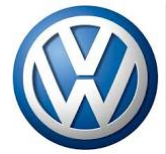PR professionals say that coming clean is the only way VW might be able to save itself
 Automotive giant Volkswagen has seen millions of dollars wiped off its brand value since it emerged that it had faked emissions tests in the US. Mumbrella’s Miranda Ward asked public relations professionals how the company should move forward in its attempts to try to save its brand.
Automotive giant Volkswagen has seen millions of dollars wiped off its brand value since it emerged that it had faked emissions tests in the US. Mumbrella’s Miranda Ward asked public relations professionals how the company should move forward in its attempts to try to save its brand.
PR professionals are agreed on one thing – Volkswagen, once synonymous with quality amongst consumers, is facing the biggest crisis in its history thanks to its emissions scandal. But what they don’t agree about is how to save the brand.
The scandal, which revealed that the car giant had installed devices in diesel engines that could detect when they were being tested for emissions output, changing the performance accordingly to improve results, has seen Volkswagen recall almost 500,000 cars in the US alone, with the situation being monitored in Australia with the the Australian Competition and Consumer Commission beginning its own investigation.


It’s definitely a huge cock up that has heavily impacted their corporate reputation and brand equity, but it’ll be interesting to see how Dieselgate ultimately impacts their vehicle sales volume and bottom line. VW cars continue to be compelling propositions in many of the categories that they sit in and they have a bunch of new models launching this year and next. Definitely will be one to keep an eye on and also one for the corporate reputation/PR textbooks in the future.
Wow, a bunch of highly paid hacks saying the very same thing, but in way too many words:
F*ck up.
Front up.
Fess Up.
Just goes to show that some of the best advertising in the world counts for nought when you’re hit with a PR crisis (albeit of the company’s own making) that’s handled sub-optimally
now is the time to spend $1m on crack issues managers to protect what’s left of that global $150m ad budget, Herr Volkswagen….
Das betrügen
Das Schadenfreude.
If they are willing to distort emissions testing, what are they doing on things that aren’t independently tested?
This is an integrity issue, not a brand issue. Until VW demonstrates what it is doing for those who purchased its vehicles under its misleading claims and how this and its internal clean-up activities reflect its corporate values, investor confidence and scepticism will continue to wag the dog.
As stated on VW’s corporate website:
“Not only does Volkswagen’s corporate culture focus on people, it also represents the sustainability of economic and social goals, corporate social responsibility”.
Faceless multinational’s will preach a load of values on their websites and in their reception areas for all to see and then rarely practice what they preach.
Guess who’s values these were: ‘Communication. Respect. Integrity. Excellence’.
– Enron’s
To be fair, the ad industry has it’s fair share of slime, who tart themselves up and yell to the world when they do something that helped the environment, or a charity; however continue to help faceless organisations sell brown fizzy death water, junk food and peddle websites that encourage people to have affairs; whats new?
A car company founded by hitler is worried about how it is perceived? The name is still the same…